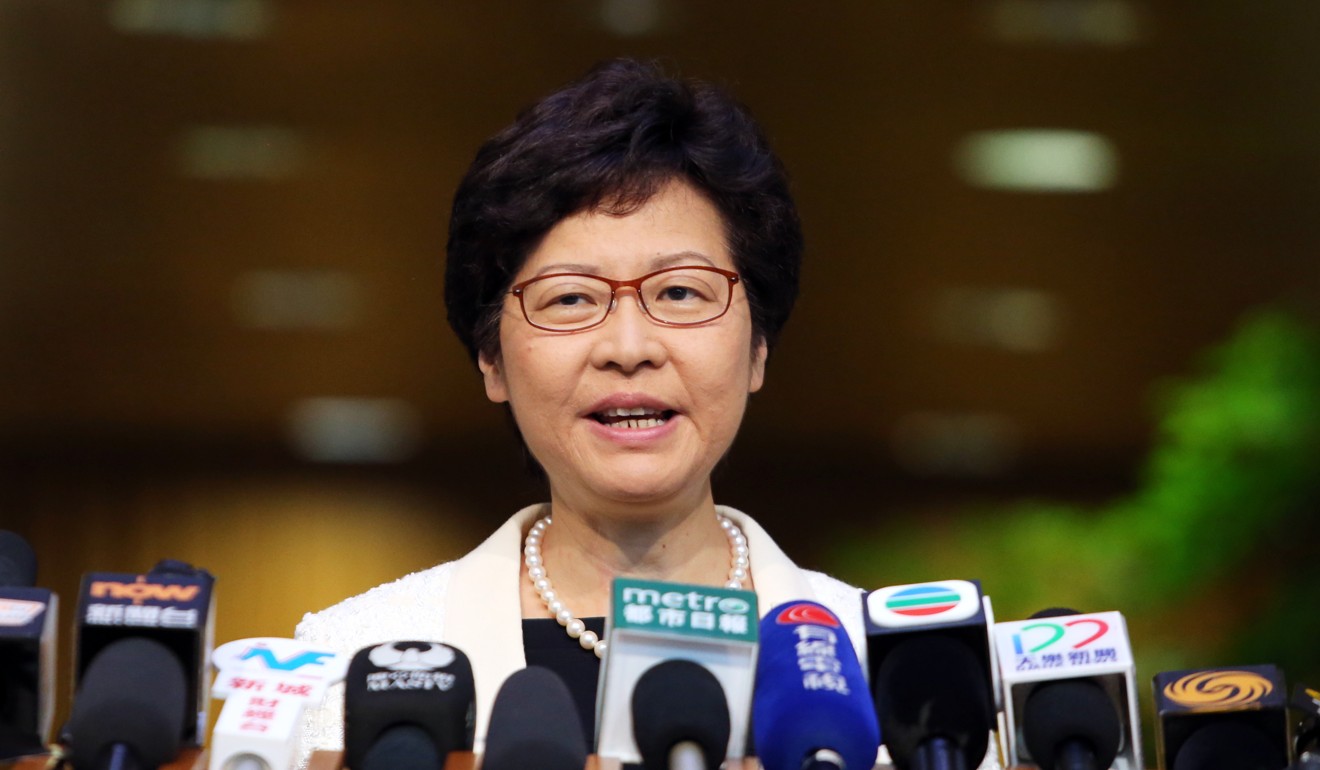
Hong Kong leader Carrie Lam doubles down on HK$5 billion education pledge on first day in office
City’s new chief executive says part of budget will go to the most urgent programmes first, and also promises review of contentious assessment test
Hong Kong’s new leader Carrie Lam Cheng Yuet-ngor started her first day at work by confirming she will respond to calls by lawmakers to increase recurrent spending on urgent education programmes.

Arriving at her office in Tamar at 8.15am to meet the media, Lam said: “I am no stranger to this building … but I am here today with a different feeling, as I will be the person most responsible for leading Hong Kong towards new glory in the next five years.” She was referring to a phrase used by Xi on Saturday.
Lam also said she was “glad to have reached a broad consensus in the last few months” to use part of the HK$5 billion on the most urgent programmes, such as those that need to be implemented in the next school year starting in September.
“If what I announce on Wednesday does not amount to HK$5 billion, it doesn’t mean I am backtracking on my promise. We are just doing the urgent ones first,” she said.
Lam added she expected education lawmaker and pan-democrat Ip Kin-yuen to help lobby his colleagues when the funding proposal was tabled in Legco’s Finance Committee.
The Legco summer recess starts in about two weeks, but the committee’s chairman has the power to convene meetings during the three-month stretch.
Lam said: “I will listen to lawmakers’ views, and look at whether the committee’s agenda needs to be reshuffled to make way for this proposal.”
On the controversial Basic Competence Assessment test for Primary Three pupils, Lam said: “I will ask the Education Bureau to review it in the hope that it will return to what it was intended to be – a basic competence assessment that doesn’t require too much drilling for pupils.”
Responding to Lam’s comment about lobbying, Ip said he would leave this in the hands of the education officials. “I think all lawmakers will do their job and scrutinise the funding proposal when the papers are ready.”
Ip added that he expected the proposal to include creating more regular teaching posts in primary and secondary schools, as well as offering subsidies for students in self-financing tertiary institutions who are currently ineligible for official aid.
“Many young teachers who are contract staff or teaching assistants are facing the question of whether their contracts can be extended for the next school year, and it is important that they can become regular teachers,” Ip said.
On the student subsidies, he added: “Self-financing institutions charge very expensive tuition fees … If the funding proposal can be approved by mid-July ... the financial difficulties of many students can be resolved.”
Ip said he hoped that the proposal would benefit at least half of some 4,000 contract teachers in the city. He also said he hoped Lam would adopt his recommendation on offering students in self-financing institutions an annual subsidy of HK$30,000 each.
Speaking later at a gathering with media editors, Lam elaborated on her views on other issues in the education system.
Xi called for more education for youngsters on China’s constitution, history and the Basic Law, the city’s mini-constitution. Lam admitted on Sunday that the government could do more on that front.
But when asked to elaborate on Monday, Lam said she wanted to first create a “stable and caring” environment for teachers, the key players in the system, so that they felt dignified and respected.
Lam said creating a new national education curriculum or further strengthening students’ mainland exchanges “are not urgent tasks” for her.
She hoped that the city’s two major groups for teachers, the pro-Beijing Federation of Education Workers and the pro-democracy Professional Teachers’ Union, could work together as they shared the common goal of improving the education system.
But Lam did not say whether she would hire the federation’s vice-chairwoman, Christine Choi Yuk-lin, as education undersecretary. Choi has been tipped to take up the post.

